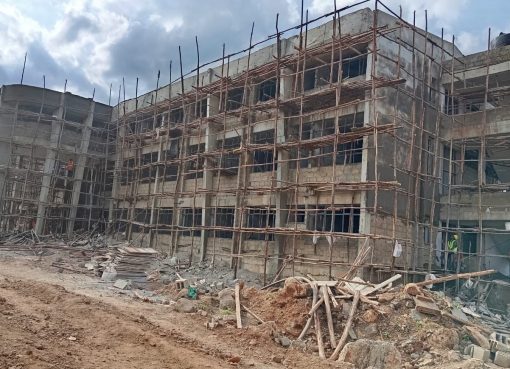Kenya could be staring at a food crisis in coming years if a report released last week by a German NGO is anything to go by.
According to the report by Heinrich Boell Foundation released on February 27, only 20 per cent of the country’s land is arable with the situation set to worsen in coming years.
In addition, the country is said to be losing at least 26 tonnes of soil per hectare every year through soil erosion, with soil salinization affecting another 4 per cent of irrigated land with both scenarios impacting negatively on measures to sustain food production.
“Soil is the foundation of life, yet it remains one of the most overlooked and undervalued resources. Its health influences the food we eat, the water we drink, and the air we breathe.
Protecting soil is not just an agricultural concern, it is essential for sustaining ecosystems, food security, and climate resilience, particularly in Africa,” said Heinrich Boell Foundation Director, Joachim Paul through a press release.
Paul released the findings in Nairobi during the launch of Soil Atlas-Kenya Edition, a publication that presents analysis on the nature of our soils and how viable they are as far as food production is concerned.
According to the findings, soil degradation is clawing back efforts in increasing food productivity especially in the rural areas and also widening the gap in social equality.
In addition, too much reliance on synthetic fertilizers, monoculture farming and deforestation has led to a rapid decline in soil fertility, erosion and increase in desertification.
According to the report, 63 per cent of the country’s land is affected by acidity, 80 percent of soils suffer from phosphorus deficiency and another 75 per cent of our soils are experiencing depleted organic carbon levels, reducing soil fertility and microbial activity.
As a remedy, Kenya and the larger East Africa region must support sustainable farming practices such as agroecology to restore soil fertility.
“Agroecology offers a sustainable path forward by integrating biodiversity, soil management, and organic inputs such as organic fertilizer and biopesticides.
Studies show that agroecological farming can improve yields by up to 30 per cent while reducing dependence on costly synthetic fertilizers. Investing in these practices will not only restore soil fertility but also build resilience against climate change,’’ added Dr Harun Warui, Lead Programme Coordinator, Agroecology and Food Rights at Heinrich Boell Foundation.
Christine Gatwiri, a Project Coordinator at Route to Food Initiative (RTFI) underscored the need for dietary diversity as a solution to the country’s long-term nutrition security.
To attain this, she insisted, there must be a deliberate shift towards organic inputs alongside employment of sustainable soil practices that not only protect the soil but enhance the nutritive value of the food people consume on a daily basis.
“Healthy soils lead to nutrient-dense crops, which in turn support human health and reduce reliance on external fortification. While we acknowledge the government’s commitment to food fortification through mandatory large-scale fortification (MLSF) policies, we must address the root cause -nutrient deficient soils.
Sustainable soil restoration practices, including organic inputs and diverse cropping systems are essential for long-term nutrition security, particularly for vulnerable groups such as pregnant women and lactating mothers,” noted Gatwiri.
In 2021 RTFI had challenged the Government to consider embracing agroecological practices as a cure to addressing perennial food challenges in the country.
Addressing reporters during a workshop organized by RTFI, Dr Martin Oulu said the country was losing its biodiversity due to noxious farm inputs such as pesticides and synthetic fertilizers.
Oulu who also doubled as the coordinator of the Intersectoral Forum on Agroecology and Agrobiodiversity (ISFAA) said agroecology and other nature-based solutions to agriculture could be the silver bullet the country needs to deal with the problem of food insecurity.
“Why should we import fertilizer and yet we could work with extension officers who could train farmers on how to produce manure and organic fertilizer in their backyard,” he posed.
“These are simple processes which farmers, especially smallholders should be immersed into.”
The University of Nairobi don also challenged institutions of higher learning that offer agriculture courses to transform with time and adopt agroecology courses as a way of knowledge transfer and protection of endangered biodiversity.
Agroecology includes a variety of agricultural methods such as diversification of crops, conservation tillage, green manures, natural fertilizers and nitrogen fixation, biological pest control, rainwater harvesting and production in ways that store carbon and protect forests.
By Samuel Maina





